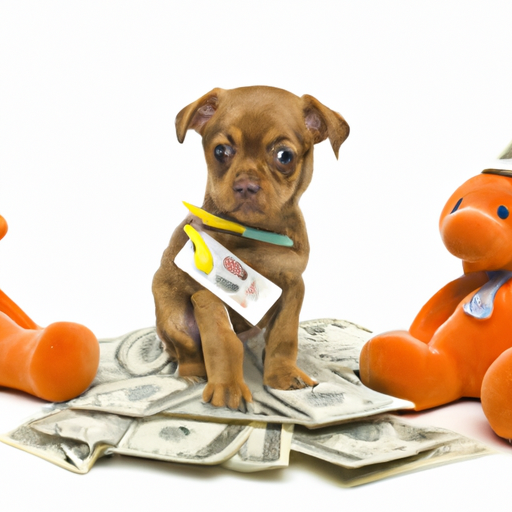Congratulations, you’ve decided to add a new furry friend to your family. The decision to get a small dog is an exciting one, but it’s also one that comes with a lot of considerations, especially in terms of cost. Remember, buying a small dog isn’t just about the initial purchase price. The cost includes food, grooming, vet check-ups, equipment, toys, and much more. Let’s dive into the details to give you a clear idea of how much it really costs to have a small dog as a pet.
Table of Contents
- Initial Purchase Price
- Cost of Feeding
- Health and Vet Costs
- Grooming and Hygiene
- Toys and Equipment
- Training Costs
- Insurance Costs
- Frequently Asked Questions
Key Takeaways
- The cost of owning a small dog goes beyond the initial purchase price.
- Recurring costs such as food, grooming, and health care can add up.
- Investing in pet insurance can help manage unexpected costs.
- Careful budgeting and planning can make dog ownership more affordable.
Initial Purchase Price
The initial purchase price of a small dog can vary widely. If you’re purchasing a purebred from a reputable breeder, the cost can range from $500 to $2,000 or more. If you’re adopting a small dog from a shelter, the adoption fee is typically between $50 and $300. This comprehensive guide on dog prices from the American Kennel Club can give you a better idea of the price range for different breeds.
Cost of Feeding
Small dogs eat less than larger breeds, but they still have specific dietary needs. On average, you can expect to spend about $20 to $60 per month on food, depending on the brand you choose and your dog’s specific dietary needs. It’s crucial to provide them with high-quality food to ensure their health and well-being. This informative article from onetopdog.com provides valuable insights into dog nutrition.
Health and Vet Costs
Healthcare is a significant part of the cost of owning a dog. Routine vet visits, vaccinations, flea and tick prevention, and heartworm medicine are just some of the recurring costs you will need to budget for. You can expect to spend anywhere from $100 to $300 per year on these regular vet costs.
You should also be prepared for unexpected health problems. For instance, small dogs often have dental issues that require professional cleaning or even surgery. An informative read on common health issues in small dogs can help you understand what you might be up against.
Grooming and Hygiene
Grooming costs can vary greatly depending on the breed of your small dog. Some small breeds, like Poodles and Shih Tzus, require professional grooming every 4 to 6 weeks, which can cost anywhere from $30 to $100 per session. Other breeds, like Chihuahuas and Boston Terriers, have short coats that require less professional grooming.
Apart from professional grooming, you will also need to budget for grooming supplies like shampoos, brushes, and nail clippers. A handy grooming guide for small dogs can help you understand more about the grooming needs of your little friend.
Toys and Equipment
Toys and equipment are essential for your small dog’s physical and mental stimulation. You will need to invest in a quality leash, collar or harness, dog bed, feeding bowls, and an assortment of toys. Depending on your choices, these items can add another $100 to $200 to your initial costs.
Training Costs
Training is instrumental in raising a well-behaved and happy dog. You may choose to train your dog yourself, or you may opt for professional training classes. The cost of these classes can range from $30 to $100 per session.
Insurance Costs
Pet insurance can help manage unexpected costs, such as accidents or sudden illness. The cost of pet insurance varies depending on the breed, age, and health of your dog, but on average, you can expect to pay between $10 to $70 per month.
Frequently Asked Questions
1. Is it cheaper to adopt a dog or buy from a breeder?
Adopting a dog is generally cheaper than buying from a breeder. Adoption fees usually cover initial veterinary costs, including vaccinations and spaying/neutering.
2. How can I save money on vet costs?
Investing in pet insurance can help cover unexpected vet costs. Regular preventative care, like keeping up with vaccinations and providing flea and tick prevention, can also help avoid costly health problems down the line.
3. Do small dogs need professional grooming?
It depends on the breed. Some small dogs with long or curly hair require regular professional grooming, while others with short coats can be easily groomed at home.
In conclusion, owning a small dog is a significant financial commitment. It’s not just about the initial purchase or adoption fee; it’s also about the ongoing costs associated with feeding, healthcare, grooming, and other essentials. It’s crucial to budget accordingly and ensure you can provide the best care for your new best friend.



